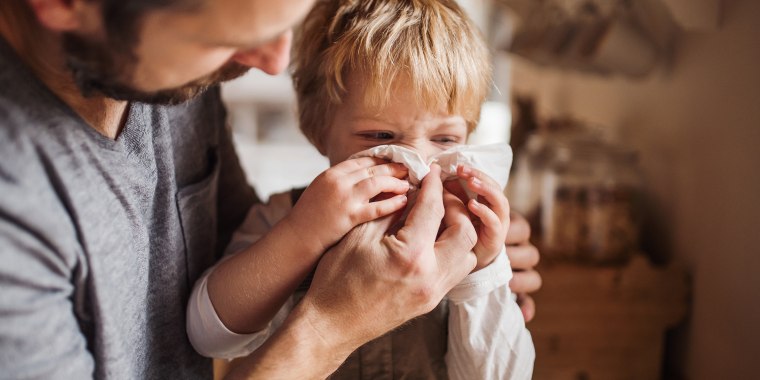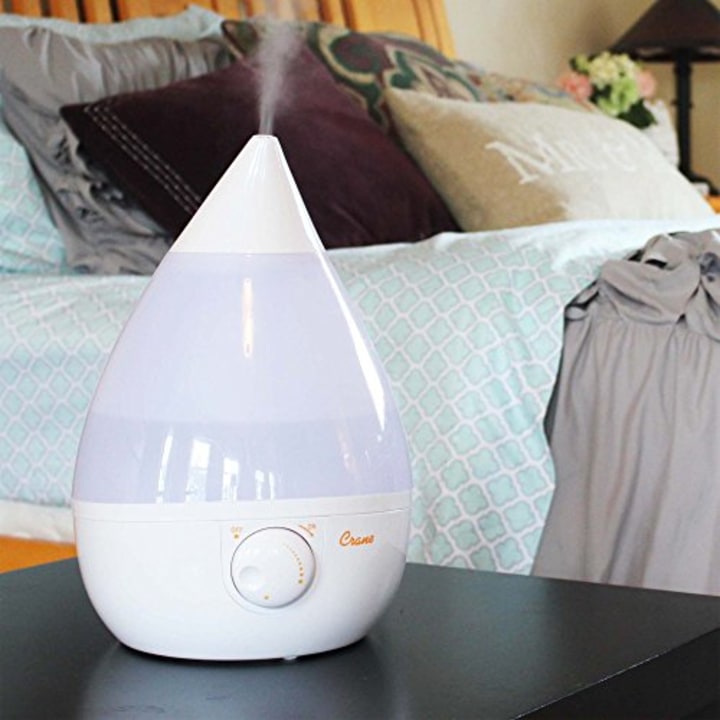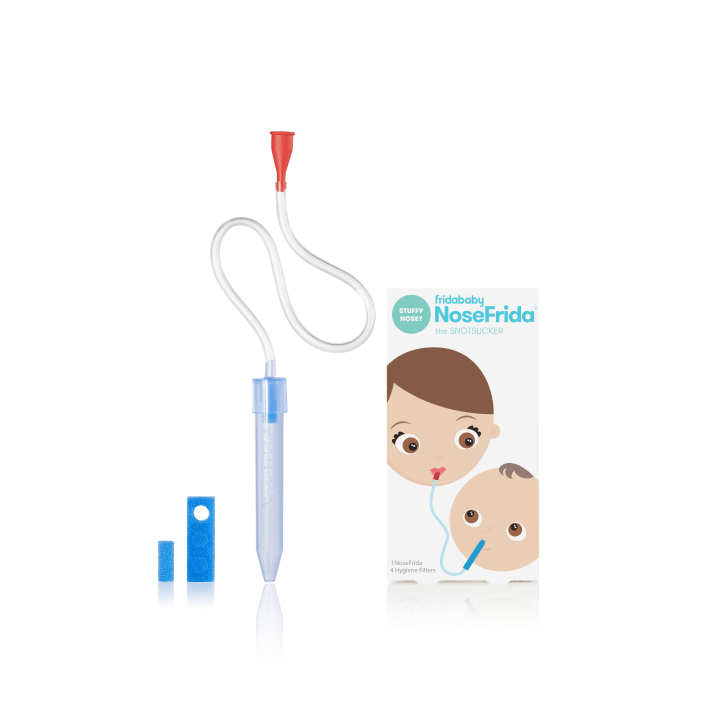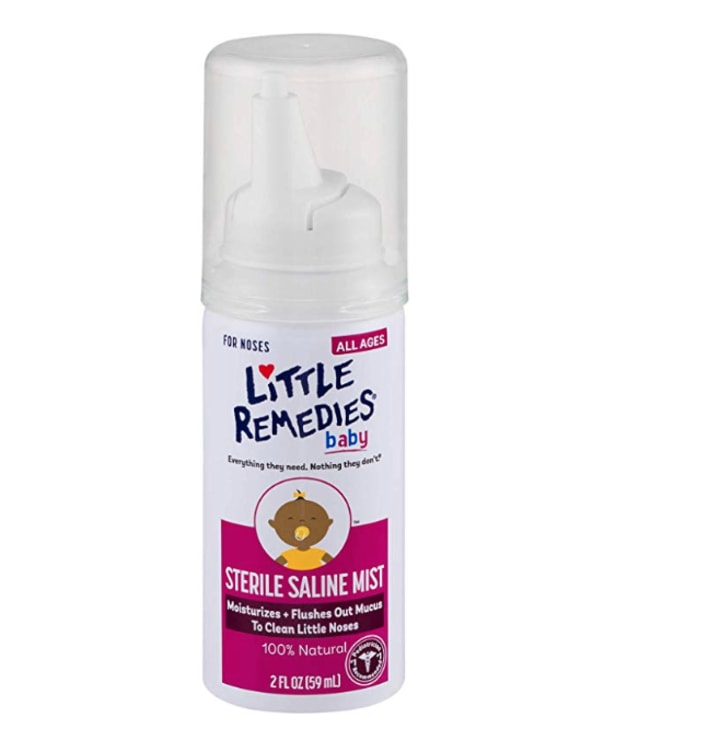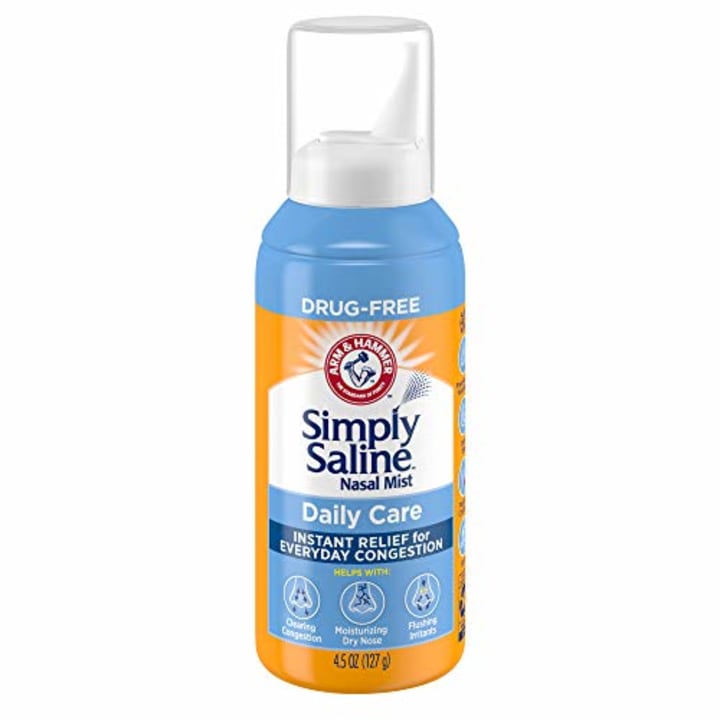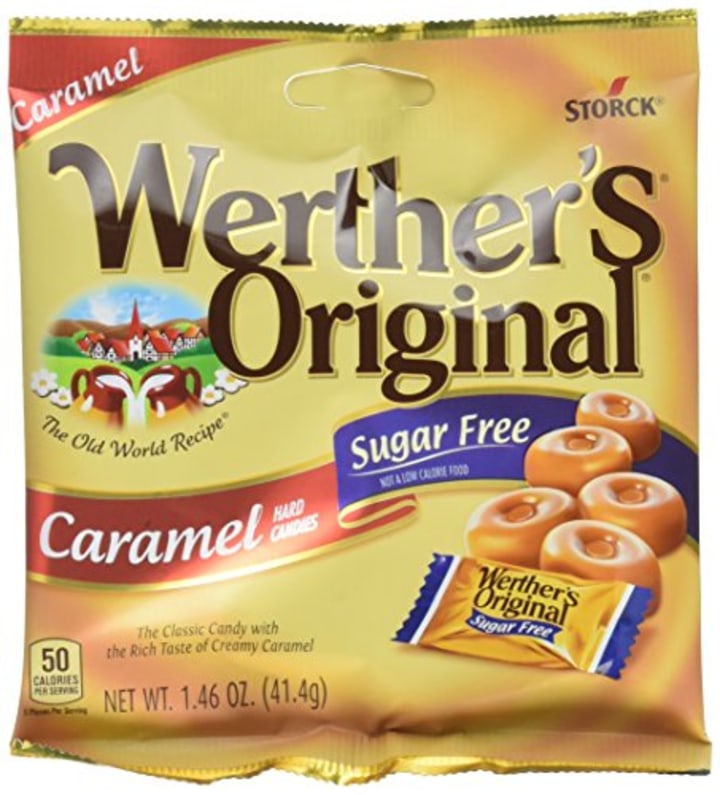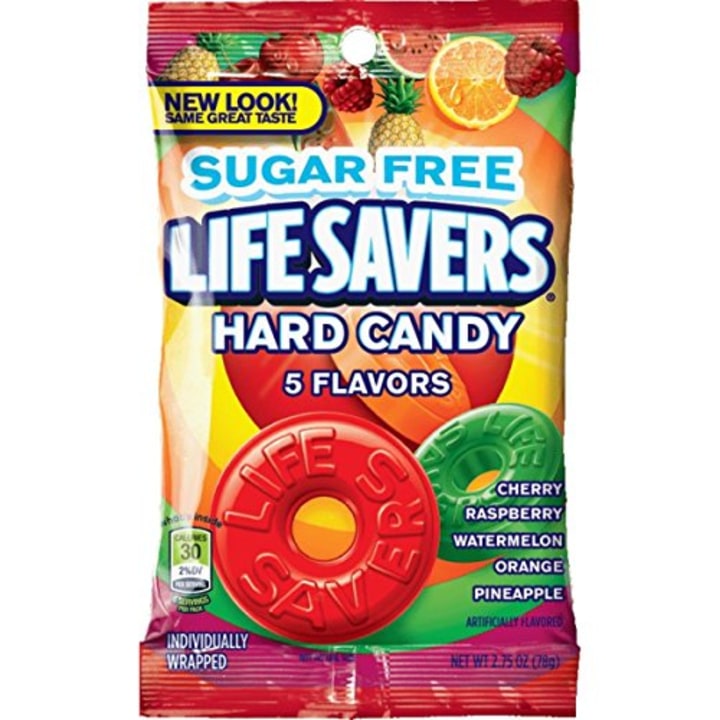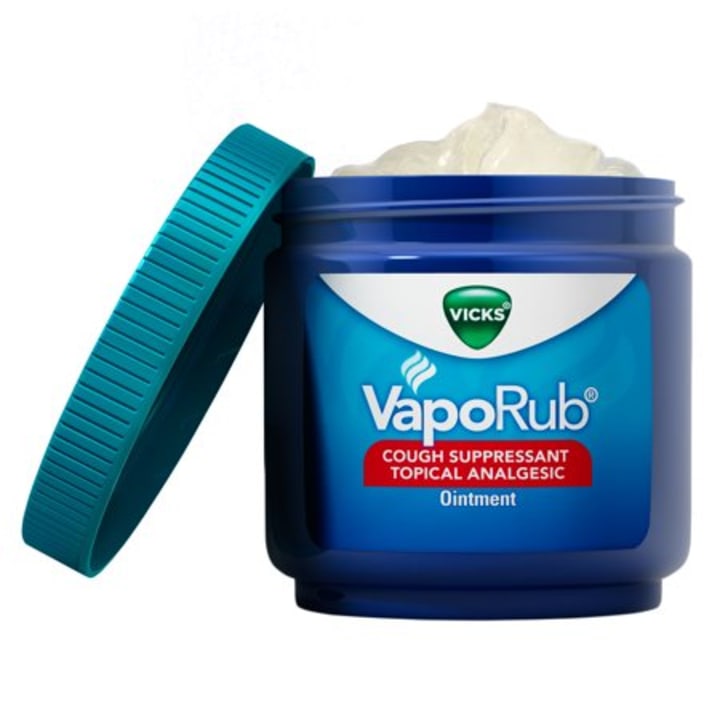Cold and flu season can feel endless, especially when you have little kids. A cough can linger long after the virus that caused it is over, according to the American Academy of Allergy, Asthma & Immunology. In fact, coughing helps protect the body by eliminating mucus and bacteria.
If your child’s coughing is keeping them (and the entire family) up at night, their little chest and tummy are probably sore from all the exertion.
Thankfully there are cough remedies for kids that range from easy solutions (like trying to keep their head elevated) to products (like a nasal aspirator that manually sucks the mucus from their sinuses).
15 home cough remedies for kids
If you have ruled out a serious cough, there are plenty of home remedies that may help take the edge off. Here are 15 home cough remedies for kids to try:
1. Keep their head elevated
If your little one is over 1 year old, arrange a few pillows under their back, shoulders and head so that they can sleep in a slightly upright position, allowing for easier breathing.
For a baby, place a pillow underneath their crib mattress to elevate the area where they rest their head. If you're unsure how to do this, it's best to speak with a doctor beforehand to discuss the risk of SIDS and suffocation.
2. Get steamy!
William Sears, M.D., pediatrician, and author of "The Baby Book" and dozens of other childcare books, recommends turning your bathroom into a steam room. Simply run a hot shower, close the door, and sit inside with your child for 15 minutes before bed and again for 15 minutes in the morning. The steam helps loosen chest and nasal congestion, making it easier for kids to cough or blow it out.
Dr. Tanya Altmann, mother of three and founder of Calabasas Pediatrics Wellness Center, recommends reading books or playing with toys so kids can breathe in the steam and stay distracted. While you’re in the steam room — if your child will let you — drum on their back and chest (where the lungs are) to help break up congestion there. Use your open palms and clap harder than you would if you were burping them, but not so hard that it hurts.
3. Use a humidifier
Altmann also recommends running a cool-mist humidifier all night to keep your child’s airways clear and moist. In the morning, open the windows and air out the room for a bit; the humidity overnight may cause mold to grow.
Crane Ultrasonic Cool Mist Humidifier
Altmann recommends Crane humidifiers. "They are cute, easy to direct the cool mist, easy to clean and not very expensive," she said.
4. Get a NoseFrida
Once the steam has done its job of loosening up mucus in your little hacker, encourage them to cough it out. For their nose, use a nasal aspirator to clear out the sinuses (most kids don’t master the art of blowing their nose until 4 or 5). A bulb syringe will do an OK job, but if you really want the Cadillac of snot suckers, the NoseFrida is best in class.
NoseFrida
Yes, you do literally suck mucus out of your tyke’s nose through a tube, but don’t be intimidated; the device’s ingenious design ensures that the nasty stuff will never touch your mouth.
One TODAY editor loved her NoseFrida when her son was younger, and Altmann is also a fan of the device.
5. Clear the nose
In addition to using a nasal aspirator, spray a saline solution in each of your child’s nostrils to loosen mucus a few times a day. Since post-nasal drip tickles the throat and mouth-breathing dries it out, keeping the nose un-stuffed is key for treating coughs. According to Altmann, a few drops of breast milk in each nostril for nursing babies would also work.
Little Remedies Sterile Saline Mist
This saline spray is described as being safe for newborns, so you don't have to worry about using it for your little ones.
Simply Saline Nasal Mist by Arm & Hammer
Altmann also recommends this Simple Saline Nasal Mist. "It's easy to use and gentle on babies' and kids' nostrils," she said.
6. Try honey
Because of significant safety concerns, cough and cold medicines are no longer recommended for children under age 6. What's more, honey treats nighttime coughing better than that over-the-counter stuff, according to research. The type of honey used in the studies was buckwheat, a darker, stronger-tasting variety, but all types should do the trick of soothing and coating scratchy throats.
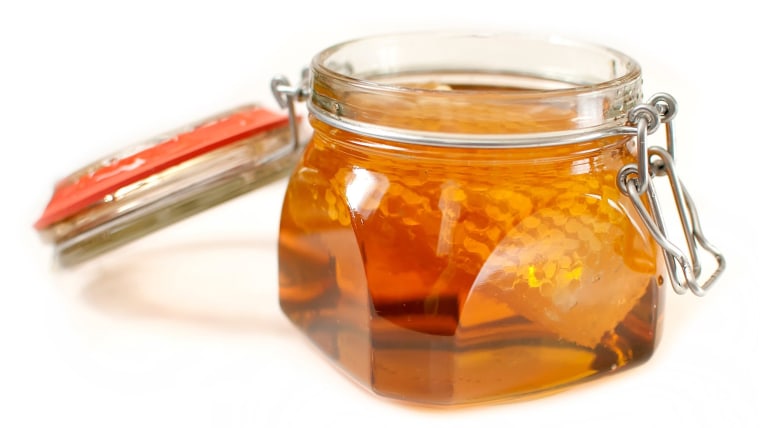
Give a spoonful to your child before bed and as needed in a mug of warm water or warm decaf tea. Since babies under 1 shouldn’t consume honey, you may need to be resourceful with your littlest ones. Kenneth Wible, medical director of the Pediatric Care Center at Children's Mercy Hospitals & Clinics in Kansas City, has had success giving maple syrup to his youngest grandchildren.
7. Say yes to candy
Wible also says that sucking on sugar-free hard candy (for kids over 5 only) may offer “some kids some benefit” when it comes to quiet coughs. Don’t count on a ton of relief, but sweets make everyone feel a little better, right? While you’re in the candy aisle, pick up some Crunch bars for yourself— taking care of a sick kid is hard work!
Altmann recommends not giving hard candy to kids under 5.
Werther's Original Sugar-Free Caramel Hard Candy
Life Savers Sugar-Free Hard Candy
8. Use a chest rub
For children older than 2, massage some Vicks VapoRub on their chest, recommends Wible. A recent study found that while the medicated rub only lessened coughing slightly, it made coughing, congested kids feel much more comfortable at night.
Vicks VapoRub Ointment
The product isn't recommended for children younger than 2, however, since it can irritate the airways and increase mucus production, causing breathing difficulties in babies and toddlers.
9. Try an internet rumor
Speaking of Vicks VapoRub, you may have been forwarded an email sometime in 2007 touting an unusual and “amazing” use for the ointment: The author claims that rubbing copious amounts of the stuff on the soles of your feet and then covering them up with socks will cure a cough.
“Even persistent, heavy, deep coughing will stop in about 5 minutes and stay stopped for many, many hours of relief,” the email read. While the “research” cited in the email turned out to be bogus, many people — including several we know first-hand — still swear by the trick. It's best to consult a doctor before trying.
10. Encourage them to drink
We all know we’re supposed to “drink extra fluids” when we’re sick, but why? Does it really do anything? Yes, says Sears: Staying hydrated can thin mucus secretions, which allows them to be expelled from your body more efficiently. Keep a drink by your child’s bed at night. Avoid orange juice, though, as it can irritate a throat that’s sore from coughing.
11. Don’t be afraid of milk
In your efforts to get your child to drink more, you may think you have to stick to water and juice. But milk, if your kiddo likes it, can do their body good. And it doesn’t, contrary to popular belief, increase mucus production; many studies have proven that association to be a complete myth. What it means: A few glasses of the white stuff won’t make your kid’s cough worse, but it will keep them hydrated. And vitamin D is a boost to a wounded immune system.
Never miss a parenting story with TODAY’s newsletters! Sign up here
12. Serve chicken soup
Though no one is sure why, studies have proven that chicken soup really does ease coughs and soothe sore throats. The best part: It doesn’t matter whether it’s homemade or comes from a can.

13. Get them to gargle
Is chicken soup too much work? Take away the chicken, the noodles, and the veggies, and what do you have? Warm, salty water — which is another time-tested, expert-approved cough remedy. Again, no one’s really sure why this works, though it could be that the salt absorbs excess fluid from swollen throat tissues, temporarily reducing their size and making them less tender.
What to do: Mix a teaspoon of salt in a cup of warm water and have your child gargle as many swigs as they can. That being said, be sure to monitor your child closely while gargling.
14. Clean up
If your kiddo’s cough is dry and raspy, it could be caused by asthma or allergies. Try to remove as many irritants as you can from your home. Don’t wear perfume or use room fresheners, ban your dog or cat from your child’s room, remove stuffed animals (dust collectors) from the bed and do not smoke in your home or anywhere near your child.
15. Step outside
If your child has croup, an infection characterized by a loud, barking cough, you may want to take them outside (after you’ve taken them to the pediatrician, of course!). Cool night air is a time-tested remedy for the “barking seal” cough. And while some studies have cast doubt on the effectiveness of an outdoor stroll, try telling that to the millions of moms who’ve been quieting their children's coughs by doing just that. A drive in the car with the windows cracked — even if it’s cold (just bundle up) — may do the trick, too.
Know when to call the doctor
At-home remedies are great, but sometimes you need reinforcements, especially if you or your child have been exposed to COVID-19. Here’s when to ring your pediatrician:
- Your child has a barking cough (croup)
- They have stridor (a noisy or musical sound) when breathing in
- They make a “whooping” sound when breathing in after coughing (pertussis; call 911 if you hear this sound in a baby less than 3 months old)
- They are wheezing when breathing out (unless you already have an asthma care plan from your doctor)
- They have a fever of 102 degrees or higher (or has any fever and is less than 3 months old)
- They are coughing up blood
- Their cough lasts for longer than two weeks
- If your child is having great difficulty breathing, their breathing is getting worse, or their lips, face, or tongue have a blue or dusky color, call 911.
This story was originally published on Feb. 16, 2016, on TODAY.com, and has been updated.
